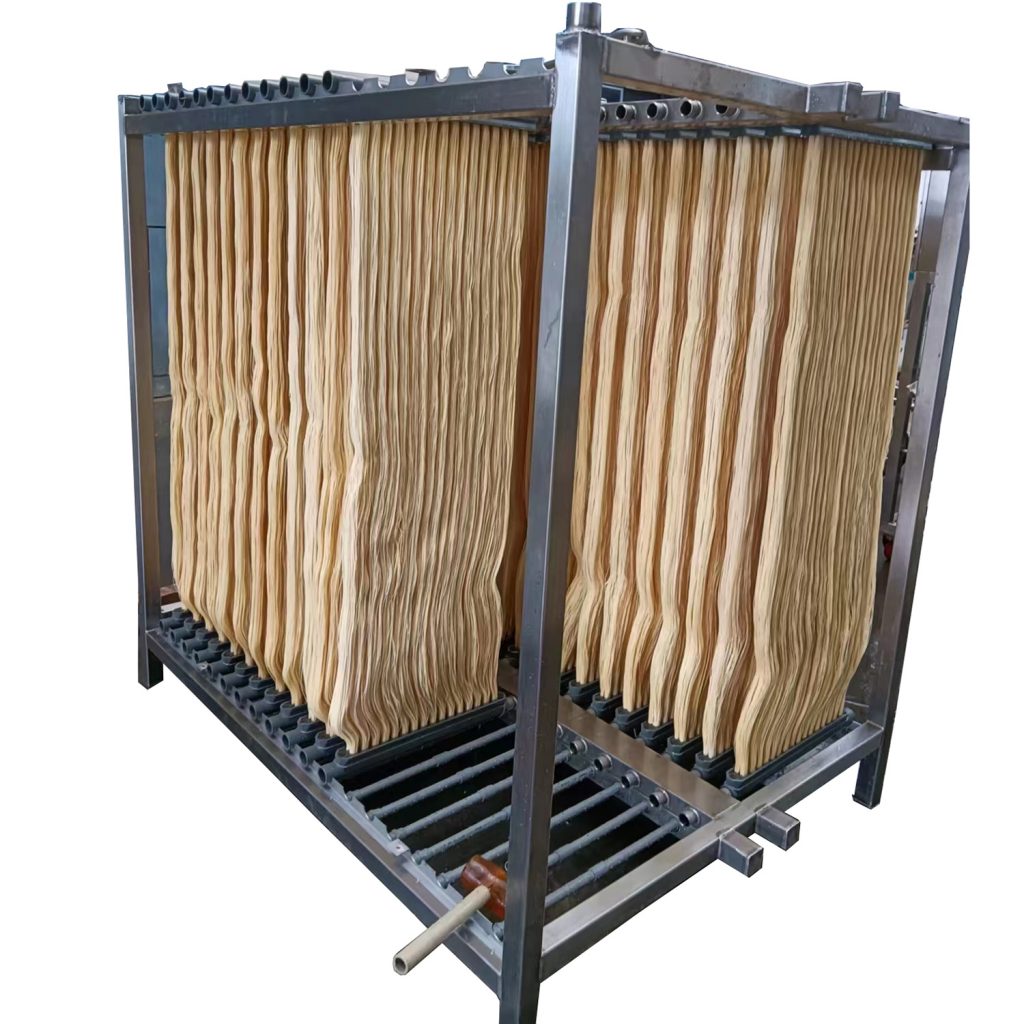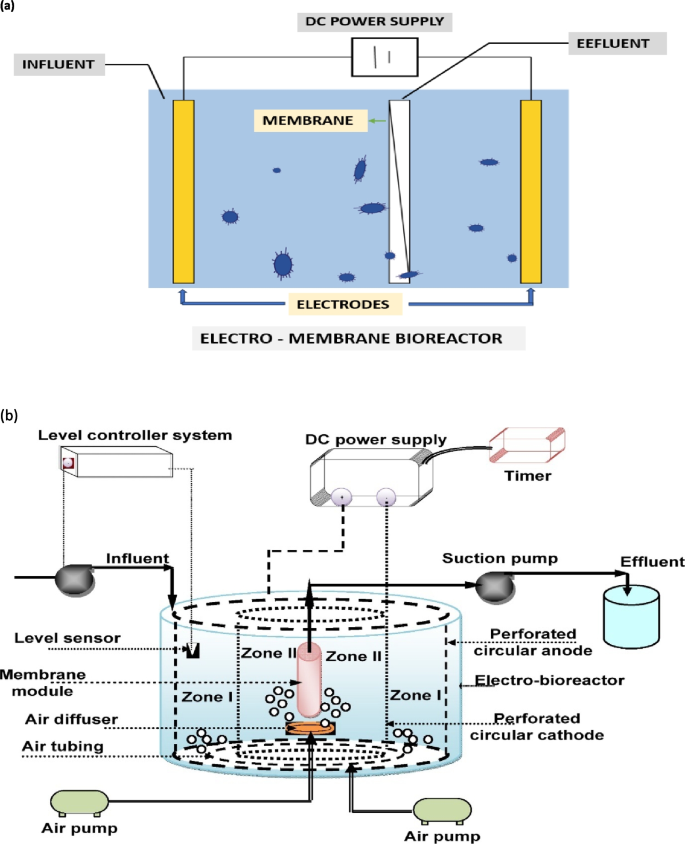Future Trends in Membrane Bioreactor Technology and Its Global Impact
Wiki Article
How Membrane Bioreactors Are Revolutionizing Water Purification Systems
The appearance of membrane layer bioreactors (MBRs) represents a substantial innovation in the area of water purification, merging organic therapy procedures with sophisticated membrane layer filtration technologies. As global water scarcity escalates, the role of MBRs in assisting in safe and clean water reuse and sustainable water management ends up being progressively essential.Introduction of Membrane Bioreactors
Membrane layer bioreactors (MBRs) represent a considerable advancement in water filtration innovation, as they integrate organic therapy processes with membrane layer purification. This assimilation enhances the efficiency of wastewater treatment by using microbes to degrade natural toxins while simultaneously utilizing semi-permeable membrane layers to different cured water from put on hold solids and microorganisms.The MBR system typically includes a biological reactor where the microbial population metabolizes contaminants, adhered to by a membrane filtering device that maintains biomass and allows only tidy water to go through. This dual functionality causes higher effluent top quality contrasted to conventional therapy methods. MBRs can be run in both set and constant circulation modes, offering versatility in style and application.
They likewise allow the recuperation of water for reuse, therefore contributing to water sustainability efforts. In general, MBRs are at the leading edge of enhancing water therapy performance and high quality, showcasing the capacity for cutting-edge options in environmental administration.
Advantages of MBR Modern Technology
The combination of organic treatment with membrane purification uses countless benefits for water filtration procedures. Among the primary benefits of Membrane Bioreactor (MBR) technology is its capability to effectively eliminate both organic and not natural contaminants, leading to high-grade effluent. The membrane layers act as a physical obstacle, avoiding suspended solids and microorganisms from travelling through, which boosts the total safety and dependability of cured water.In addition, MBR systems require a smaller sized impact contrasted to traditional treatment techniques, allowing for extra reliable area usage. This small style is especially useful in city settings where land is limited. MBRs also demonstrate functional versatility, accommodating differing influent qualities and circulation prices without significant performance destruction.
In addition, the process uses improved nutrient elimination capabilities, especially for nitrogen and phosphorus, which are critical for avoiding eutrophication in obtaining waters. The decreased sludge manufacturing connected with MBR modern technology also equates to decrease disposal prices, making it an economical option over time - Membrane Bioreactor. Overall, the benefits of MBR modern technology setting it as a leading option for lasting and ingenious water purification systems, attending to both environmental and economic issues
Applications in Water Purification
Applications of Membrane Bioreactor (MBR) modern technology in water purification are varied and impactful, dealing with different therapy needs across multiple sectors. MBRs efficiently incorporate organic treatment processes with membrane layer purification, making them excellent for municipal wastewater therapy, industrial effluent management, and also potable water reuse efforts.In metropolitan settings, MBRs are significantly used to boost the top quality of dealt with wastewater, permitting conformity with strict discharge laws and assisting in the recycling of check this water for irrigation and non-potable uses. Their portable style also makes them ideal for metropolitan atmospheres where area is restricted.
Industrially, MBR innovation is made use of to deal with procedure water and wastewater, specifically in sectors such as food and drink, drugs, and textiles. By efficiently eliminating contaminants and suspended solids, MBRs assist industries decrease ecological influences while recovering useful resources from wastewater streams.
Additionally, MBRs are gaining grip in decentralized water therapy applications, where small-scale systems can be deployed in remote areas or developing regions. This versatility allows areas to accomplish lasting water management services, improving access to clean water while reducing dependence on conventional treatment approaches.
Situation Researches and Success Stories

In another instance, a fabric manufacturing facility in Bangladesh took on MBR technology to resolve its wastewater obstacles. The system reduced chemical oxygen demand (COD) degrees from 1,200 mg/L to less than 100 mg/L, therefore meeting governing criteria and significantly decreasing ecological impact.
The College of Cape Community's MBR setup has shown efficient in dealing with greywater for non-potable reuse on school. This job not only conserves drinkable water yet also acts as an educational version for lasting practices.
In addition, a fish and shellfish handling plant in Norway made use of MBR innovation to deal with effluents including high degrees of raw material, accomplishing over 90% toxin elimination. These study emphasize MBR modern technology's adaptability and its crucial role in enhancing water high quality across diverse applications.
Future of Water Therapy Solutions
As international water scarcity and pollution challenges heighten, ingenious water therapy services are ending up being increasingly necessary to make sure sustainable access to clean water. The future of water therapy lies in the combination of advanced technologies that enhance the effectiveness and performance of filtration procedures. Membrane bioreactors (MBRs) are at the forefront of this development, combining organic treatment with membrane purification to generate top notch effluent suitable for different applications.
Emerging fads such as source recovery from wastewater, consisting of nutrients and power, will certainly better change therapy facilities right into environment-friendly centers. Improvements in nanotechnology and membrane layer products assure enhanced performance and durability of filtering systems.

Conclusion
In final thought, membrane bioreactors represent a considerable innovation in water purification technologies, effectively combining biological treatment with advanced membrane filtration. The numerous benefits, consisting of improved effluent high quality and lowered spatial needs, make MBRs specifically appropriate for urban applications. Their function in drinkable water reuse and sustainable water monitoring highlights their relevance in attending to worldwide water deficiency obstacles. Proceeded research study and advancement will certainly better boost the efficacy and fostering of MBR modern technology, ensuring a durable future for water treatment remedies.The introduction of membrane layer bioreactors (MBRs) represents a substantial improvement in the field content of water purification, merging organic therapy processes with innovative membrane filtration technologies. As global water shortage intensifies, the duty of MBRs in assisting in drinkable water reuse and lasting water monitoring comes to be progressively critical. They also enable the healing of water for reuse, hence adding to water sustainability campaigns.As international water scarcity and contamination difficulties magnify, cutting-edge water treatment solutions are ending up being increasingly crucial to make sure lasting accessibility to clean water. Their duty in safe and clean water reuse and lasting water administration highlights their value in dealing with international water shortage difficulties.
Report this wiki page